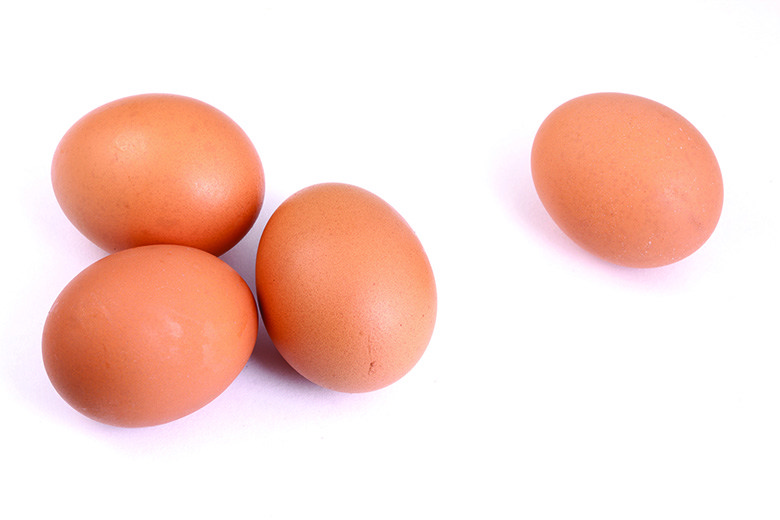
Often described as “vitamin-like” for its water soluble vitamin properties, choline is a unique micronutrient that is crucial for many biological functions.
Despite its importance, choline is seriously overlooked. Data from the National Health and Nutrition Examination Survey suggest only 8 percent of American adults meet the adequate intake for choline; in the 2010 Dietary Guidelines for Americans, it was identified as a shortfall nutrient; and the 2015-2020 Dietary Guidelines for Americans estimate most Americans consume less than the adequate intake level.
Roles in Health
Choline is essential throughout the life cycle and is critical for brain and spinal cord development. Beginning in utero and continuing throughout childhood, choline is crucial for brain development and cognitive learning. Some research shows choline can improve memory by slowing cognitive decline in older adults.
Beyond the brain, choline is part of acetylcholine, a neurotransmitter important in muscle control, memory, mood and nervous system functions. Choline also plays a role in the stabilization of DNA, transportation of fats and (with folate) possibly the prevention of neural tube defects.
Choline’s role as a neurotransmitter signaling muscle cell activity may enhance athletic performance, according to preliminary research.
Some research shows choline may be cardioprotective, yet other studies have found conflicting results. Further research is needed to investigate the link between choline and cardiovascular disease risk.
Current Recommendations
In 1998, the Food and Nutrition Board established adequate and tolerable upper intake levels for choline. Requirements begin at 125 milligrams per day in the first six months of life and advance to 550 milligrams per day for males 14 and older and 425 milligrams per day for females 19 and older. Pregnant and lactating women require 450 milligrams per day and 550 milligrams per day, respectively.
Food Sources
The U.S. Food and Drug Administration recently set the daily value for choline at 550 milligrams per day for adults and children 4 and older based on the updated Reference Daily Intake values. Foods containing 55 to 104.5 milligrams (10 to 19 percent of the DV) of choline per serving can be declared a good source and foods containing 110 milligrams or more of choline per serving (20 percent or more of the DV) are an excellent source.
| Food Sources (cooked) | mgs | Rating |
|---|---|---|
| 3 ounces beef liver | 356 mg | Excellent |
| 2 large eggs | 294 mg | Excellent |
| 3 ounces lean beef (top round) | 117 mg | Excellent |
| ½ cup soybeans | 107 mg | Good |
| 3 ounces cod | 71 mg | Good |
| ½ cup shiitake mushrooms | 58 mg | Good |
| 1 large red potato | 57 mg | Good |
Supplements are usually necessary for pregnant and lactating women. Choline supplements are available as a single nutrient, with B vitamins and in some multivitamin mineral products in amounts ranging from 10 to 250 milligrams.
Signs of Deficiency
While most Americans fall short of meeting choline requirements, deficiency is rare in healthy, non-pregnant people. A choline deficiency can cause muscle damage and nonalcoholic fatty liver disease from abnormal deposits of fat in the liver.
Toxicity
Exceeding the tolerable upper intake level of 3,500 milligrams per day of choline for adults has been associated with vomiting, increased sweating, low blood pressure and fishy body odor. Further, the FNB warns that individuals with liver or kidney disease, Parkinson’s disease, depression or inherited trimethylaminuria may be at increased risk for severe side effects when exceeding the tolerable upper intake level.
Populations at Risk
Choline’s role in brain and spinal cord development makes its consumption vital for pregnant and lactating women. However, many prenatal supplements contain little choline. In June 2017, the American Medical Association recommended that prenatal vitamins increase the amount of choline from 0 to 55 milligrams to the adequate intake of 450 milligrams daily.
Individuals with genetic alterations also may be at higher risk of deficiency.
Bottom Line
The mounting evidence of choline’s importance makes it essential that registered dietitian nutritionists remain up to date on this critical nutrient. Throughout the life cycle, RDNs can help clients meet choline requirements for good health. Food manufacturers also may take note and start fortifying choline in foods to help consumers meet requirements more easily.
Product We Recommend For The Month
Design Essentials: Professional and Textured Hair Care Products.

Design Essentials Providing hair care solutions for 30 years.



